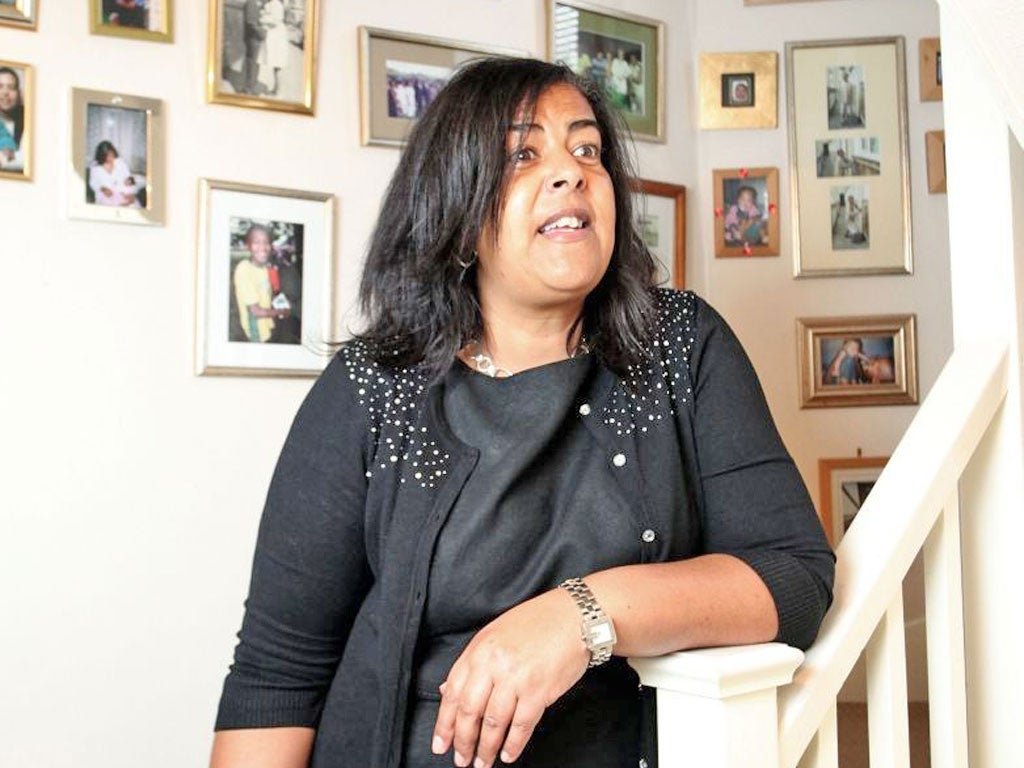Azelle Rodney family wants overhaul of 'trigger happy' police
Mother says questions remain about operation in which son died

The mother of a suspected gangster shot dead by a police marksman has called for an overhaul of Scotland Yard’s firearms operations at the conclusion of an inquiry into her son’s violent death seven years ago.
Susan Alexander said unanswered questions remained about the operation that left Azelle Rodney dead after being hit by six bullets when his car was intercepted by police trying to stop an armed confrontation with a set of Colombian drug dealers.
The officer who fired the shots, named only as E7, yesterday expressed his “great regret” for the death of the 24-year-old but said that he believed that he had no other option but to open fire to protect the lives of his colleagues, according to a statement.
E7 has given evidence to the inquiry that he fired off eight bullets because he believed Mr Rodney, a backseat passenger was stretching down into a foot well to grab an automatic weapon which had the capability of firing more than 1,000 rounds a minute. It transpired that automatic guns were not among weapons found in the car.
The family’s legal team claims that E7 was “trigger-happy” and was part of a botched operation on April 30, 2005, with senior officers failing to order arrests earlier when they could have been picked up without violence.
In an interview with the Independent, Ms Alexander called for E7 and senior officers to be held accountable for the death of her son. She said she walked out of the inquiry while E7 – who has since retired - was giving evidence because “I couldn’t believe what I was hearing”.
“This officer in particular should have been prosecuted,” she said. “He should have been dealt with straightaway and then other officers after that who were responsible. That includes senior officers.
“Obviously there are some serious issues for the police about how they work, they’re going to have to do that. My immediate problem is talking about prosecutions… doing something about it, not just talking.”
She criticised the long wait for answers in the case and said it had affected her health and her family’s wellbeing. An inquest could not be held in the months after the killing because a coroner was not legally permitted to hear details of sensitive wiretap operations. The same problem has led to delays in the inquest of Mark Duggan, whose shooting by police last year sparked the summer riots, and has led to calls for changes to the law.
“At every hurdle we thought we were getting somewhere and it will be eight years in April,” said Ms Alexander. “I’m having counselling to get through this. I just hope that the judge is going to deliver the right outcome.”
The inquiry chairman, the retired judge, Sir Christopher Holland, will now write his report and make recommendations next year. Key issues that he will have to consider include:
Timing of the raid
The family’s legal team claims that Mr Rodney and his two accomplices should have been arrested earlier in the day as surveillance teams watched him collect a weapon in Harlesden, northwest London.
Their car was stationary at the time but the operation saw three police cars used to block and ram the gang’s vehicle outside a pub. Anne Studd QC, for the Metropolitan Police, said officers ruled against moving in because the street was too busy. It showed “how difficult these operations are for highly-trained police officers making dynamic decisions with no knowledge of what would happen next”, she said. Leslie Thomas, for the family, said that Mr Rodney should have had the right to surrender. “It bears a great resemblance to an execution and no resemblance to a lawful and competent policing operation.”
The actions of E7
The highly experienced officer fired eight bullets less than a second after his car stopped alongside Mr Rodney’s. The first two bullets that struck Mr Rodney might not have been fatal, according to expert witnesses, but were followed by four to the head. The family claims he should not have been on the operation and should have had to account for every bullet. It emerged that he had shot four others during his police career, two fatally, but had received commendations for those operations. E7 denies he did anything wrong and said that he fired in response to Mr Rodney’s movements in the back of the car. “The last thing a firearms officer wants to do when he get up in the morning is to discharge his firearm,” said Samantha Leek QC, the counsel for E7.
Leadership
The family claims that the operation was headed by an inexperienced commander who may have taken “it upon himself to go for glory” and try to arrest both the Rodney group, the Colombians and recover a large amount of class A drugs. Counsel for the police said the actions were logical and defensible in the face of a dangerous group of armed criminals.
Subscribe to Independent Premium to bookmark this article
Want to bookmark your favourite articles and stories to read or reference later? Start your Independent Premium subscription today.

Join our commenting forum
Join thought-provoking conversations, follow other Independent readers and see their replies